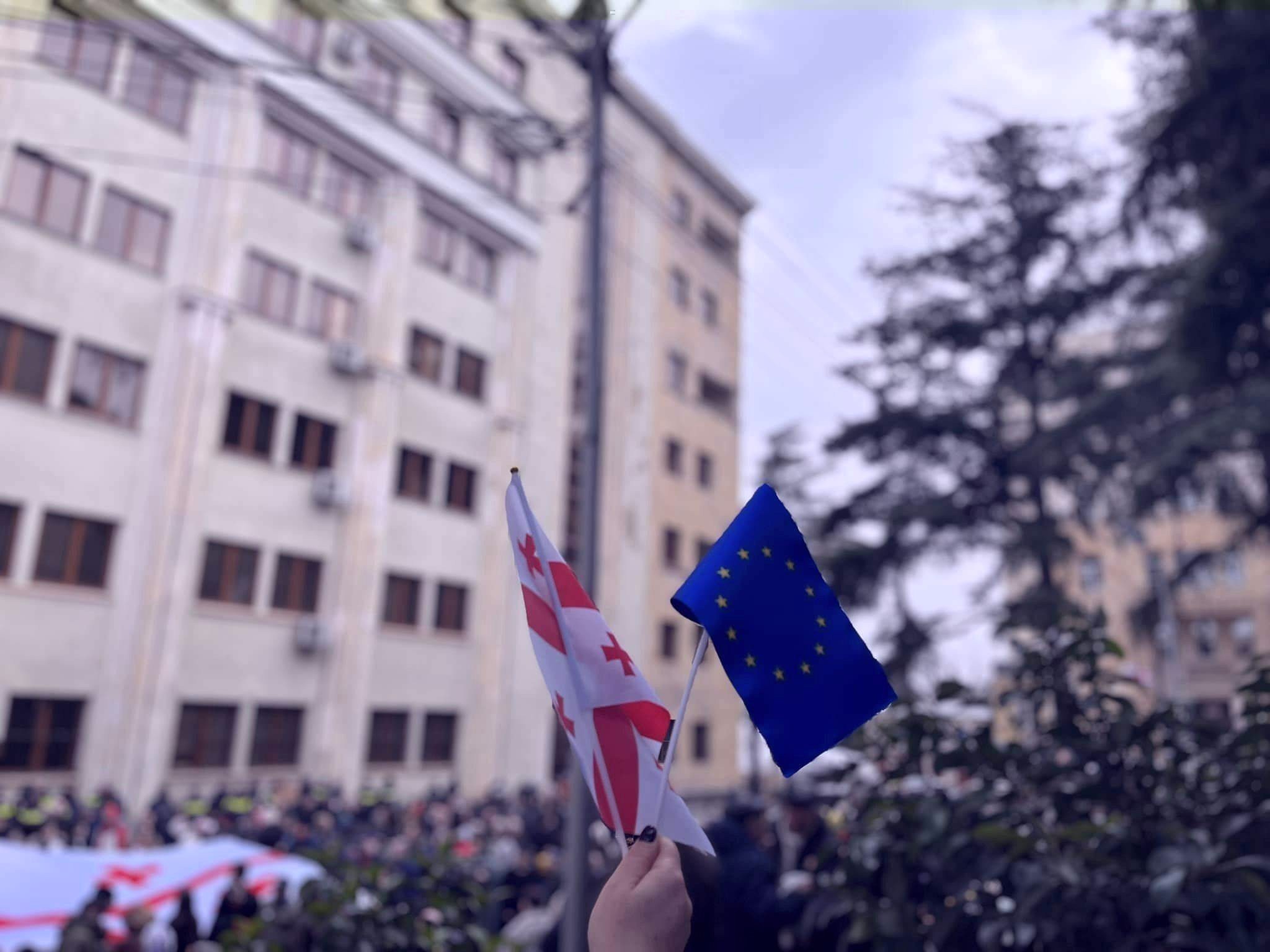საერთო ცხელი ხაზი +995 577 07 05 63


On behalf of the organizations working on the rights of persons affected by conflicts and issues of peace, we express concern regarding the political events du jour and believe that the recent steps of the Georgian Dream government are against the historical choice of the people of Georgia - integration with the European Union.
The Russian and anti-Georgian draft law supported by the Georgian Dream, which ascribes a derogatory and anti-democratic status of "agents of influence" to a large part of civil and media organizations and provides for arbitrary mechanisms of their control, is incompatible with the principles of a democratic society, human rights and the declared aspirations of Georgia's foreign policy.
Integration with the European Union is a guarantee of peace, stability, economic prosperity and social equality in Georgia. It is the membership of the European family that will make it possible to bolster the security, protection of rights and well-being of displaced and conflict-affected citizens on both sides. Only European-style democratic, inclusive and economically strong Georgia can be a reliable alternative for our citizens living beyond the dividing line. Peace and its construction is the basic principle of the European Union, and it is the membership of the European family and the related security, economic and political development guarantees that would ensure the restoration of trust and peaceful coexistence between the Georgian, Abkhaz and Ossetian people.
The Georgian government, instead of trying to actively promote the national interests of Georgia at the European institutions and offer alternative peace proposals to the Abkhazian and South Ossetian societies in the changed geopolitical context, after the brutal war in Ukraine, it creates new types of crises in the relations with the European institutions and deepens the polarization at the domestic political and public levels.
Unfortunately, the political processes taking place in the recent period essentially change the perceptions vis-à-vis Georgia as a democratic state in the region. It is well known to our society that the de facto government of Abkhazia has been unsuccessfully trying to adopt Russian legislation aimed at controlling civil organizations since 2020, which is the subject of intense criticism and opposition from the local civil society. The adoption of such a law in Georgia weakens the perception of Georgia as a democratic state. It is clear that this reality will have a heavy impact on the process of dialogue and trust restoration with the communities living on the other side of the dividing line, which contradicts the peace policy declared by the Georgian government.
As practice shows, similar laws aimed at controlling media and civil organizations are not enforced in any of the EU member states. Hungary's attempt to pass a similar law was thwarted by a European Court of Justice ruling that the draft law violated freedom of association and the free movement of capital. Similarly, the European Court of Human Rights has found violations of freedom of assembly and association in application submitted against Russia over a similar law. Under these circumstances, it is clear that the adoption of the proposed Russian law will have a devastating impact on the implementation of the recommendations related to the EU membership candidate status.
It is no less disturbing that civil and media organizations are assigned degrading statuses and are dehumanized, which the politicians of the Georgian Dream and the media controlled by thereof have actively started. This dangerous trend is tearing the society apart, and intensifying the social crises and conflicts in the country. This type of control of civil and media organizations is applied only by authoritarian political systems and it can only be considered as a setback for the country's democratic development.
We call on the Georgian Dream government to reject the consideration of the proposed draft law. Instead, the ruling power should commence an active domestic and foreign policy process to obtain EU membership candidate status and bring Georgia's security and peace policy back into the European security agenda.
Singatories:
The website accessibility instruction